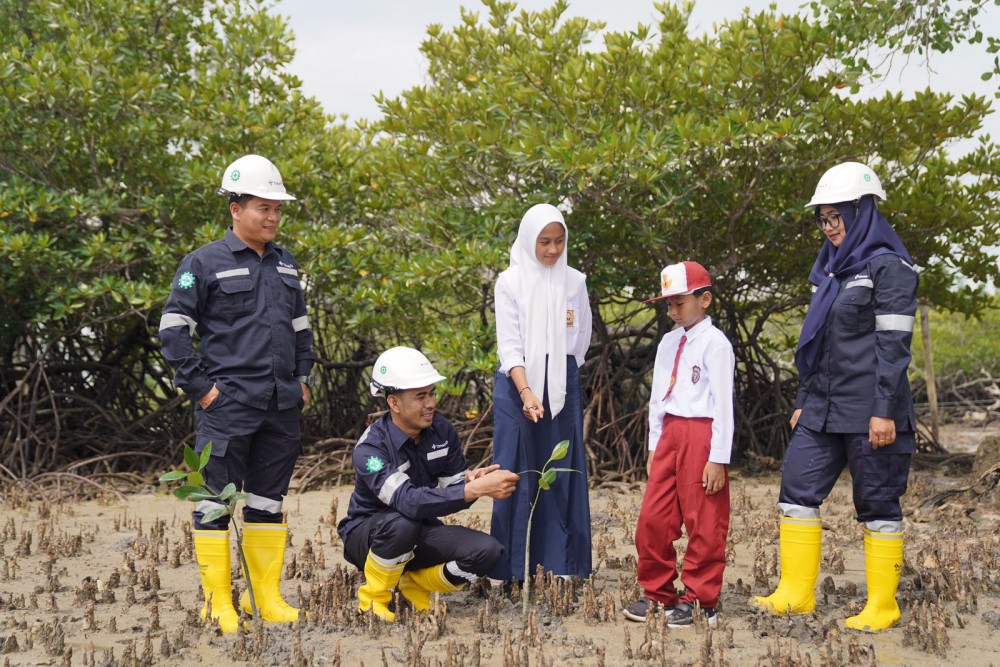
PANGKALPINANG -- PT Timah Tbk continues to demonstrate its commitment to environmental sustainability and climate change mitigation through the mangrove planting program implemented in the company's operational areas.
The mangrove planting program promoted by PT Timah is part of the Company's Environmental Social Responsibility (TJSL) program in the Environmental Sector to protect the mangrove ecosystem which has a significant role in absorbing carbon emissions, protecting coastlines, and supporting biodiversity.
PT Timah's consistency in planting mangroves is an integral part of the Company's commitment to supporting environmental sustainability and playing an active role in supporting the global agenda of overcoming the impacts of climate change, providing a positive impact on society and the environment.
Through TJSL and PPM for the Environmental Sector, PT Timah in 2024 plans to plant 45,000 mangrove trees spread across the Company's operational areas. Until July 2024, PT Timah has planted 32,000 mangrove trees.
Tens of thousands of mangroves were planted in the Bangka Belitung Islands Province and the Riau Islands Province. In carrying out mangrove planting, PT Timah collaborates with community groups.
It is hoped that this mangrove planting activity will not only have an impact on the restoration of mangrove ecosystems in coastal areas but also efforts to develop maritime agro-based community livelihoods and an integrated economy for coastal communities.
Apart from that, it is also hoped that it can improve the community's economy through the mangrove nursery program. Where the community is invited to be directly involved in seeding, planting, and care.
PT Timah's Head of Corporate Communications, Anggi Siahaan, said that mangrove planting is also in line with PT Timah's Good Corporate Governance (GCG) commitment to ensure sustainable growth by paying attention to environmental aspects.
"As part of its environmental responsibility, PT Timah is committed to sustainable mangrove planting in coastal areas. This effort will not only help mitigate the impact of climate change, but also provide long-term benefits for the community and ecosystem around our operational areas," said Anggi.
As is known, mangroves are known as one of the most effective ecosystems in absorbing and storing carbon. Planting mangroves is considered a strategic step in efforts to mitigate climate change that is being faced by the world.
"Through collaboration with the community, we hope to create mutual awareness of the importance of mangroves for environmental sustainability and community welfare. Apart from that, this program also opens up new economic opportunities for local communities, for example through managing mangrove ecotourism which can improve the local economy," he added.
Apart from functioning as a carbon sequester, mangroves also have many other ecological benefits, such as protecting coastlines from abrasion, reducing the risk of flooding, and providing habitat for various types of flora and fauna.
By planting and preserving mangroves, PT Timah plays a role in maintaining the balance of coastal ecosystems. From an economic perspective, mangrove forests are spawning grounds for various types of fish and shrimp, which are a source of livelihood for fishermen. (*)